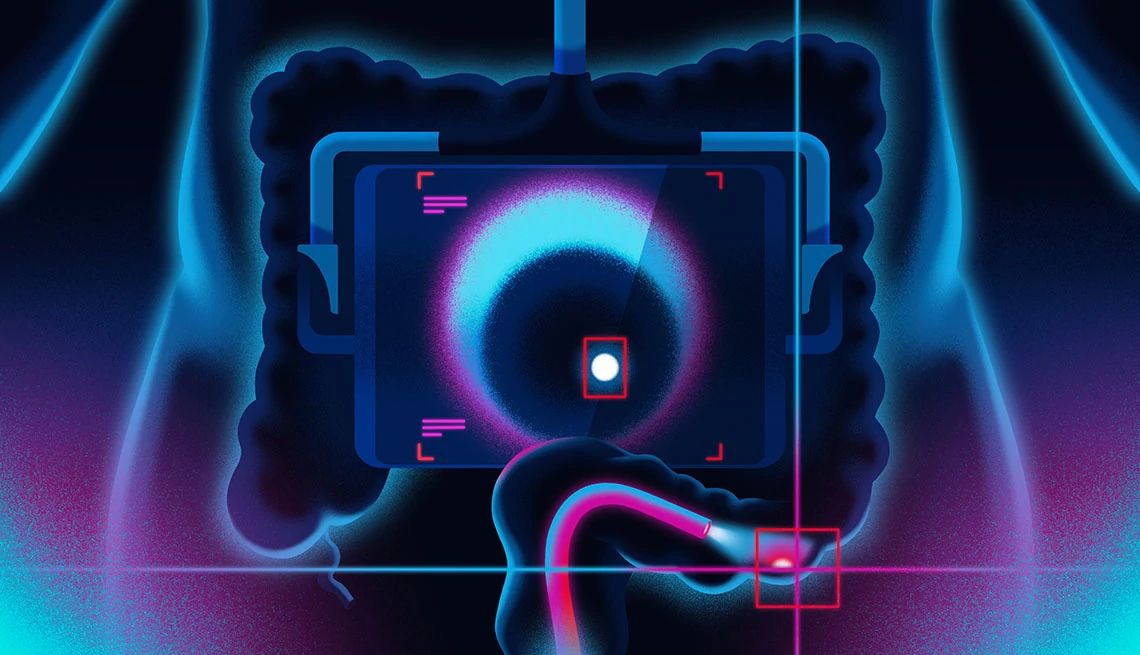
Breakthroughs in colon cancer screening | members only
- Select a language for the TTS:
- UK English Female
- UK English Male
- US English Female
- US English Male
- Australian Female
- Australian Male
- Language selected: (auto detect) - EN
Play all audios:

John Lloyd put off colon cancer screenings for years. When he finally had his first colonoscopy, at age 56, it found a tumor the size of a lemon. “I was lucky,” he says. “It was stage 3
cancer that hadn’t spread beyond some lymph nodes.” Chemotherapy, radiation and surgery wiped out his cancer. Now Lloyd, 72, president of an electrical contracting firm in Durham, North
Carolina, gets colonoscopies every three years. But his most recent colonoscopy came with a high-tech twist: artificial intelligence to help spot polyps that can become cancers. “It’s like
having another set of eyes,” says Neeraj Sachdeva, M.D., of RMG Gastroenterology in Raleigh, North Carolina. “It allows you to do a more meticulous exam.” A traditional colonoscopy relies on
the eyes of the doctor, yet some types of abnormal growths in the colon can be hard to spot. GI Genius from Medtronic, the first AI-assisted colonoscopy system available in the U.S., got
marketing authorization from the U.S. Food and Drug Administration (FDA) in 2021; others are coming out. The computer-aided system swiftly analyzes in real time the high-definition video
images from a doctor’s endoscope (the tiny camera used to examine the interior walls of the colon during a colonoscopy). Potential trouble spots are highlighted in a green-edged box on the
monitor viewed by the doctor. It’s estimated that in 2024, 152,810 people in the U.S. will be diagnosed with colorectal cancer; 53,010 will die, according to the American Cancer Society.
Colonoscopy lowers cancer risk by finding precancers and removing them, Sachdeva says. AI has made colonoscopies even more accurate: In one study, the technology boosted the discovery of
growths from 33 to 42 percent in doctors who were considered experts at performing colonoscopies and analyzing results, finding early cancers and reducing the rate of future tumors.
“Colorectal cancer mortality is going down because we’re picking up more cancers and precancers as more people get screened,” Sachdeva says. But some midlife and older adults aren’t getting
checked. “The technology is there,” says Sachdeva. “If we catch your lesion early, taking care of it is simple. You can avoid chemotherapy, radiation and surgery.”
